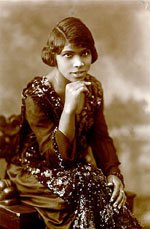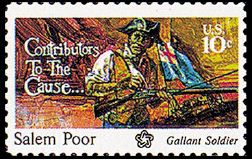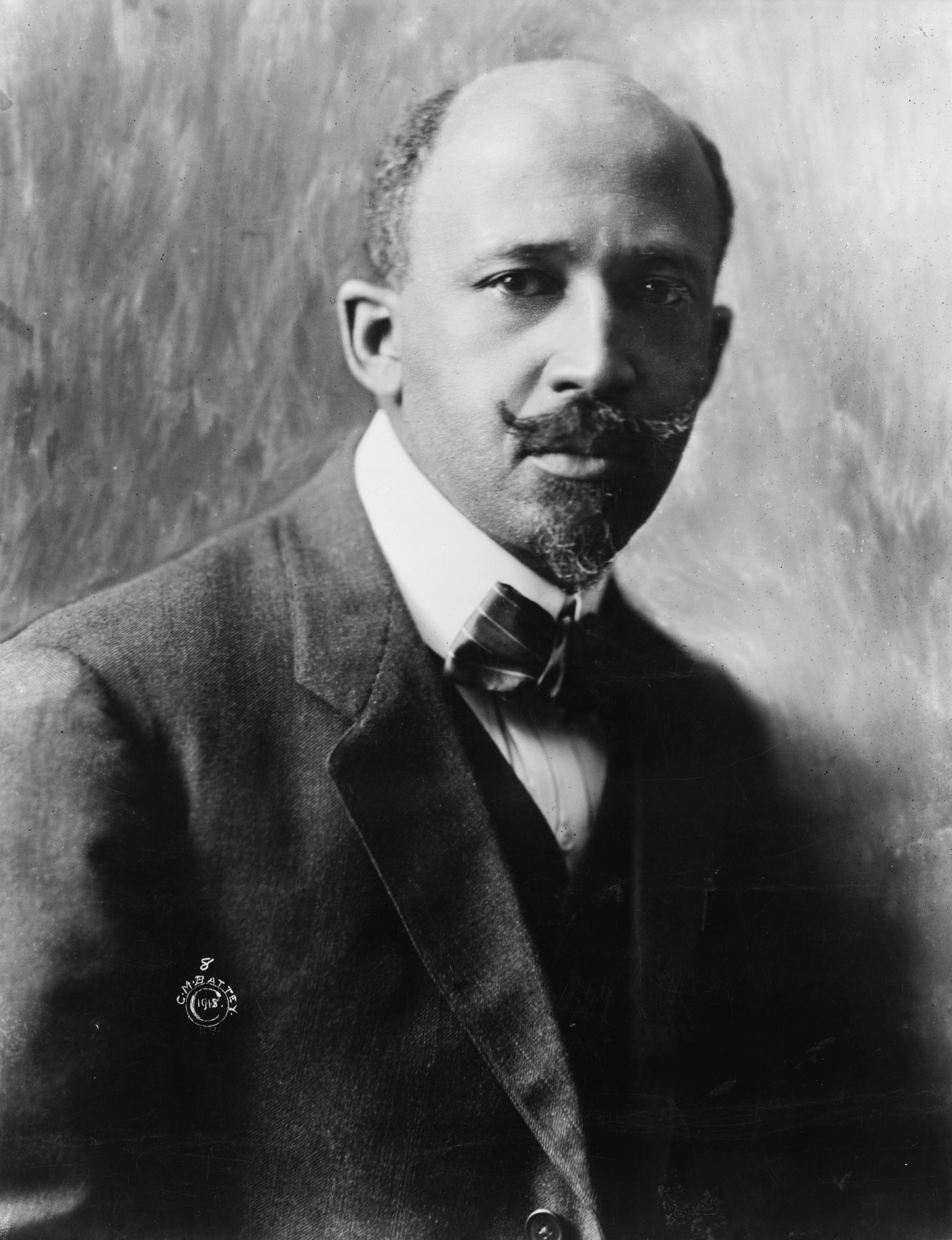|
Phillis Wheatley Club
The Phillis Wheatley Clubs (also Phyllis Wheatley Club) are women's clubs created by African Americans starting in the late 1800s. The first club was founded in Nashville, Tennessee, in 1895. Some clubs are still active. The purpose of Phillis Wheatley Clubs varied from area to area, although most were involved in community and personal improvement. Some clubs helped in desegregation and voting rights efforts. The clubs were named after the poet Phillis Wheatley. About Phillis Wheatley Clubs worked on improving their neighborhoods and the lives of people in their communities. Clubs were also involved in social reform. In New Orleans, the Phyllis Wheatley Club founded the only training hospital for black doctors and nurses in 1896. The hospital was originally named the Phyllis Wheatley Sanitarium and Training Hospital for Nurses. The Chicago club was founded in 1896 by a group of Black women led by Elizabeth Lindsay Davis, and created a home for young women without permanent ho ... [...More Info...] [...Related Items...] OR: [Wikipedia] [Google] [Baidu] |
Phyllis Wheatley Club, Buffalo, New York LOC
Phyllis or Phillis is a feminine given name of Greek language, Greek origin meaning ''foliage''. Phyllis (mythology), Phyllis is a minor figure in Greek mythology who killed herself in despair when Demophon of Athens did not return to her and who was transformed into an almond tree by the gods. Phillida, Phyllicia, and Phyllida are all variants of the name. Usage The name has been in use since the 1600s when, often spelled Phillis, it was used by English poets John Wilmot, Earl of Rochester and Matthew Prior. African-born American poet Phillis Wheatley (1753–1784), who was captured and Slavery, enslaved in the United States and was later freed, was named Phillis by her enslavers after the slave ship on which she arrived. Phillis was a popular name for women among the population of enslaved women in the United States. In the spelling Phyllis, the name was popularized in the late 1800s after it was used by bestselling popular Irish novelist Margaret Wolfe Hungerford for the her ... [...More Info...] [...Related Items...] OR: [Wikipedia] [Google] [Baidu] |
Sylvanie Williams
Sylvanie Francoz Williams (died August 12, 1921) was an American educator and clubwoman based in New Orleans, Louisiana, USA. Early life Sylvanie Francoz was born in New Orleans, the daughter of François Francoz and Sarah Francoz. The date of her birth varies in sources, from 1847 to 1855; her obituary places her birthdate around 1849.V. P. Thomas"Veteran Teacher Dies after 51 Years Service"''New York Age'' (August 27, 1921): 7. via Newspapers.com She trained as a teacher at Peabody Normal School."Voices of Progress: Sylvanie Francoz Williams" The Historic New Orleans Collection, Virtual Exhibits and Collections. Career Sylvanie F. Williams worked as a school administrator, principal of the Fisk School Girls' Departmen ...[...More Info...] [...Related Items...] OR: [Wikipedia] [Google] [Baidu] |
Marian Anderson
Marian Anderson (February 27, 1897April 8, 1993) was an American contralto. She performed a wide range of music, from opera to spirituals. Anderson performed with renowned orchestras in major concert and recital venues throughout the United States and Europe between 1925 and 1965. Anderson was an important figure in the struggle for African American artists to overcome racial prejudice in the United States during the mid-twentieth century. In 1939, during the period of racial segregation in the United States, racial segregation, the Daughters of the American Revolution (DAR) refused to allow Anderson to sing to an integrated audience in DAR Constitution Hall, Constitution Hall in Washington, D.C. The incident placed Anderson in the spotlight of the international community on a level unusual for a classical musician. With the aid of First Lady Eleanor Roosevelt and her husband, President Franklin D. Roosevelt, Anderson performed a critically acclaimed open-air concert on Easter ... [...More Info...] [...Related Items...] OR: [Wikipedia] [Google] [Baidu] |
William H
William is a masculine given name of Germanic origin. It became popular in England after the Norman conquest in 1066,All Things William"Meaning & Origin of the Name"/ref> and remained so throughout the Middle Ages and into the modern era. It is sometimes abbreviated "Wm." Shortened familiar versions in English include Will or Wil, Wills, Willy, Willie, Bill, Billie, and Billy. A common Irish form is Liam. Scottish diminutives include Wull, Willie or Wullie (as in Oor Wullie). Female forms include Willa, Willemina, Wilma and Wilhelmina. Etymology William is related to the German given name ''Wilhelm''. Both ultimately descend from Proto-Germanic ''*Wiljahelmaz'', with a direct cognate also in the Old Norse name ''Vilhjalmr'' and a West Germanic borrowing into Medieval Latin ''Willelmus''. The Proto-Germanic name is a compound of *''wiljô'' "will, wish, desire" and *''helmaz'' "helm, helmet".Hanks, Hardcastle and Hodges, ''Oxford Dictionary of First Names'', Oxfor ... [...More Info...] [...Related Items...] OR: [Wikipedia] [Google] [Baidu] |
Maud Cuney Hare
Maud Cuney Hare (''née'' Cuney, February 16, 1874 – February 13 or 14, 1936) was an American pianist, musicologist, writer, and African-American activist in Boston, Massachusetts in the United States. She was born in Galveston, the daughter of famed civil rights leader Norris Wright Cuney, who led the Texas Republican Party during and after the Reconstruction Era, and his wife Adelina (née Dowdie), a schoolteacher. In 1913 Cuney-Hare published a biography of her father. Essentially part of the second generation after emancipation, Cuney Hare studied at the New England Conservatory of Music in Boston and became an accomplished pianist. She lived in Jamaica Plain, a neighborhood of Boston, most of her adult life. A musicologist, she collected music from across the South and Caribbean in her study of folklore, and was the first to study Creole music. Her final work, '' Negro Musicians and Their Music'' (1936), documents the development of African-American music. Early life and ... [...More Info...] [...Related Items...] OR: [Wikipedia] [Google] [Baidu] |
Racine, Wisconsin
Racine ( ) is a city in Racine County, Wisconsin, United States, and its county seat. It is located on the shore of Lake Michigan at the mouth of the Root River (Wisconsin), Root River, south of Milwaukee and north of Chicago. It is the List of cities in Wisconsin, fifth-most populous city in Wisconsin, with a population of 77,816 at the 2020 United States census, 2020 census. It is the principal city of the Racine metropolitan statistical area (consisting only of Racine County) with 197,727 residents. The Racine area is part of the greater Milwaukee metropolitan area#Combined statistical area, Milwaukee combined statistical area. Racine is the headquarters of several industrial companies, namely Case IH, Dremel, InSinkErator, Modine Manufacturing, Reliance Controls, and S. C. Johnson & Son. Historically, the Mitchell & Lewis Company began making motorcycles and automobiles in Racine at the start of the 20th century. Racine was also home to the Horlicks malt factory, where ma ... [...More Info...] [...Related Items...] OR: [Wikipedia] [Google] [Baidu] |
Slavery In The United States
The legal institution of human chattel slavery, comprising the enslavement primarily of List of ethnic groups of Africa, Africans and African Americans, was prevalent in the United States of America from its founding in 1776 until 1865, predominantly in the Southern United States, South. Slavery was established throughout European colonization in the Americas. From 1526, during the early Slavery in the colonial history of the United States, colonial period, it was practiced in what became British America, Britain's colonies, including the Thirteen Colonies that formed the United States. Under the law, an enslaved person was treated as property that could be bought, sold, or given away. Slavery lasted in about half of U.S. states until Thirteenth Amendment to the United States Constitution, abolition in 1865, and issues concerning slavery seeped into every aspect of national politics, economics, and social custom. In the decades after the end of Reconstruction era, Recons ... [...More Info...] [...Related Items...] OR: [Wikipedia] [Google] [Baidu] |
Buffalo, New York
Buffalo is a Administrative divisions of New York (state), city in the U.S. state of New York (state), New York and county seat of Erie County, New York, Erie County. It lies in Western New York at the eastern end of Lake Erie, at the head of the Niagara River on the Canada–United States border, Canadian border. With a population of 278,349 according to the 2020 census, Buffalo is the List of municipalities in New York, second-most populous city in New York State after New York City, and the List of United States cities by population, 82nd-most populous city in the U.S. Buffalo is the primary city of the Buffalo–Niagara Falls metropolitan area, which had an estimated population of 1.1 million in 2020, making it the List of metropolitan statistical areas, 49th-largest metro area in the U.S. Before the 17th century, the region was inhabited by nomadic Paleo-Indians who were succeeded by the Neutral Confederacy, Neutral, Erie people, Erie, and Iroquois nations. In the early 1 ... [...More Info...] [...Related Items...] OR: [Wikipedia] [Google] [Baidu] |
Public Library
A public library is a library, most often a lending library, that is accessible by the general public and is usually funded from public sources, such as taxes. It is operated by librarians and library paraprofessionals, who are also Civil service, civil servants. There are five fundamental characteristics shared by public libraries: # they are generally supported by taxes (usually local, though any level of government can and may contribute); # they are governed by a board to serve the public interest; # they are open to all, and every community member can access the collection; # they are entirely voluntary, no one is ever forced to use the services provided; and # they provide library and information services without charge. Public libraries exist in many countries across the world and are often considered an essential part of having an educated and literate population. Public libraries are distinct from research library, research libraries, school library, school libraries, a ... [...More Info...] [...Related Items...] OR: [Wikipedia] [Google] [Baidu] |
Black History Month
Black History Month is an annually observed commemorative month originating in the United States, where it is also known as African-American History Month. It began as a way of remembering important people and events in the history of the African diaspora, initially lasting a week before becoming a month-long observation since 1970. It is celebrated in February in the United States and Canada, where it has received official recognition from governments, and more recently has also been celebrated in Ireland and the United Kingdom where it is observed in October. Origin Negro History Week (1926) The precursor to Black History Month was created in 1926 in the United States, when historian Carter G. Woodson and the Association for the Study of Negro Life and History (ASNLH) announced the second week of February to be "Negro History Week".Scott, Daryl Michael (December 29, 2011)"The Origins of Black History Month" Association for the Study of African American Life and Histor ... [...More Info...] [...Related Items...] OR: [Wikipedia] [Google] [Baidu] |
African-American Literature
African American literature is the body of literature produced in the United States by writers of African descent. Phillis Wheatley was an enslaved African woman who became the first African American to publish a book of poetry, which was published in 1773. Her collection, was titled ''Poems on Various Subjects, Religious and Moral.'' Olaudah Equiano (c. 1745–1797) was an African man who wrote ''The Interesting Narrative of the Life of Olaudah Equiano'', an autobiography published in 1789 that became one of the first influential works about the transatlantic slave trade and the experiences of enslaved Africans. His work was published sixteen years after Phillis Wheatley's work (c. 1753–1784). Other prominent writers of the 18th century that helped shape the tone and direction of African American literature were David Walker (abolitionist), David Walker (1796–1830), an abolitionist and writer best known for his ''Appeal to the Coloured Citizens of the World (''1829); Frede ... [...More Info...] [...Related Items...] OR: [Wikipedia] [Google] [Baidu] |
Pennsylvania
Pennsylvania, officially the Commonwealth of Pennsylvania, is a U.S. state, state spanning the Mid-Atlantic (United States), Mid-Atlantic, Northeastern United States, Northeastern, Appalachian, and Great Lakes region, Great Lakes regions of the United States. It borders Delaware to its southeast, Maryland to its south, West Virginia to its southwest, Ohio and the Ohio River to its west, Lake Erie and New York (state), New York to its north, the Delaware River and New Jersey to its east, and the Provinces and territories of Canada, Canadian province of Ontario to its northwest via Lake Erie. Pennsylvania's most populous city is Philadelphia. Pennsylvania was founded in 1681 through a royal land grant to William Penn, the son of William Penn (Royal Navy officer), the state's namesake. Before that, between 1638 and 1655, a southeast portion of the state was part of New Sweden, a Swedish Empire, Swedish colony. Established as a haven for religious and political tolerance, the B ... [...More Info...] [...Related Items...] OR: [Wikipedia] [Google] [Baidu] |






